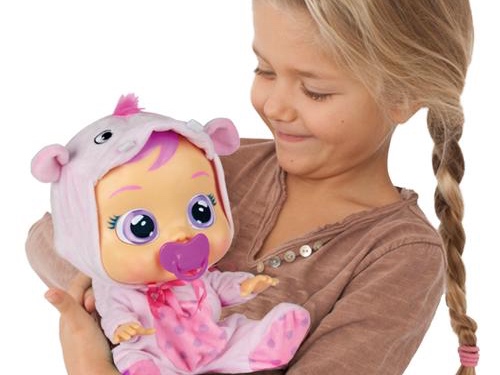
If you are a teacher, parent, or have watched a few episodes of "Super Nanny", you may already know using rewards for good behavior has been found to be more effective than handing out punishments when guiding young children. Explore why this method of discipline is so popular in this article, along with the many benefits of utilizing toys as incentives. From learning about boundaries to crafting goals and saving strategies, toys as rewards for good behavior can do wonders!
Sets Clear Consistent Boundaries
As social beings, children are born with a strong desire for approval and acceptance. In other words, they want to make you proud of them. Should you doubt this, it may be helpful to spend a few hours with a three-year-old who is persistently using the phrase, "Watch me!" before performing each newly learned skill repeatedly in hopes of catching some praise from you along the way. In fact, children will often wait to perform the skill until they are sure you are watching them with your undivided attention, despite the fact that you have seen that same skill performed at least twenty times within the last hour. This is because they want to feel your acceptance and approval of what they accomplish.
Thus, when young children break the social rules of the house or playground, it is likely they are confused about their boundaries or they do not see a clear incentive to make a better choice. They may want something they cannot have at that moment, they may have difficulty understanding why rules can change for some people and situations, or they might just want some attention. Regardless of their reasons for breaking the rules, a good reward system with well-established consistently reinforced rules and boundaries may be the best answer to getting them back on track.
Encourages Good Decision Making
Let's say you are given the option of leaving work early and having your pay reduced for the time you were gone or staying at work an extra hour and receiving a bonus in pay. Which would you choose, if you had no additional responsibilities outside of work beyond a need to earn money to pay your bills? Children during their formative years do not have outside responsibilities and interests to lure them away from the task at hand. However, they do have a pulling desire to explore their world and all the pleasurable learning experiences they encounter along the way. Sometimes, this may include playing with a friend's new animated baby doll, even if she does not feel like sharing.
By enabling the child a chance to earn time to play with the toy or receive a new animated baby doll of her own, the child has an incentive to correct any noted behaviors. This gives the child something to think about and apply in making better behavior choices instead of simply being upset about not having any hope of playing with this great toy. There could still be a few tears shed over having to wait for the reward. The good news is, after the reward is given, the child will begin to discover there is no need for tears. It might take some time, but these rewards are worth waiting for!
Makes Goal Setting Fun!
Since the child now has a rewarded reason to make better choices using a consistent and carefully established set of rules, there is less of a temptation to misbehave. After all, following the rules means getting parental approval as well as an additionally decided upon reward. There is no reason to break the rules left.
However, this system does not come without work on the part of the parents or guardians. As the child ages, the list of rules grows, the discussions about the rules become more complicated, and the rewards must also keep evolving to be deemed as valuable to the child. The great news is children can help by setting their own goals and rewards! This way, with a little adult guidance, the rewards and rules stay updated and all that is left is those wonderful teachable moments as they arise, which are excellent opportunities for bonding and learning.
Raises Self-Esteem
You did it! Beyond the tangible rewards, parental praise, goal setting skills, and bonding moments, another benefit of the reward system is enhanced self-esteem. In a world where so many children struggle with low self-esteem, the reward system offers them acknowledgement of a job well done. They can hold their heads up high knowing they set and accomplished that goal. They even have a doll or other desired toy to remind them of their hard work!
Toys Teach Money Lessons
Toys in particular are great rewards because they can lead to lessons on counting points, beads, money, and more while equally exposing the child to saving strategies for an even greater reward. After earning enough points for a trip to the toy store, children can decide whether to save points for that favorite toy or spend the currently accrued points on a nice yet less expensive toy. Shopping becomes more interactive and exciting for adults and children alike as the toy prices are compared to the earned reward points. These are memories children will cherish, and lessons they will use later on in life for larger purchases.
Thus, while requiring a little upkeep on the part of parents and adults to stay consistent and current as children grow and learn, the reward system is hard to beat for effective behavior correction. When it comes to offering a variety of prizes for reward selection, creating the incentive to establish clear rules and follow the rules to achieve those rewards, tangible evidence of accomplished goals for improved self-esteem, or counting and saving lessons, toys can serve as excellent rewards. Visit here for some colorful reward points tracking charts, and learn more about our own toy selection at this site.
